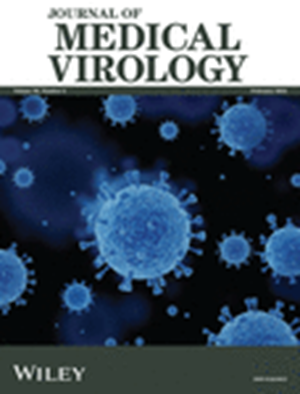The Novel Oncolytic Herpes Simplex Virus Type-1 (HSV-1) Vaccine Strain VC2 Constitutively Expressing GM-CSF Causes Increased Intratumoral T Cell Infiltration and Inhibition of Tumor Metastasis in the 4T1/Balb/c Mouse Model of Stage Four Breast Cancer
Abstract
Oncolytic virotherapy (OVT) aims to disrupt the tumor microenvironment and provide a unique therapeutic approach against solid tumors. Herpes simplex virus type-1 (HSV-1) has shown strong promise for treating various solid tumors and has been approved to treat melanoma and glioma in human patients. Previously, we reported the generation of an engineered HSV-1 vaccine strain VC2, which has shown exceptional promise as an oncolytic and immunotherapeutic virus. In the present work, we engineered VC2 to constitutively express the murine granulocyte-macrophage colony-stimulating factor (GM-CSF) gene inserted in place of HSV-1 Glycoprotein C (gC). We tested the efficacy of VC2-GMCSF for its ability to generate antitumor response in the 4T1 stage four metastatic breast cancer mouse model. GM-CSF expression enhanced VC2 viral replication and infectious virus production. Tumors formed after 7 days of engraftment in the mammary fat pad of Balb/CJ mice were treated by injecting ~5 × 104 plaque forming units (PFU) of VC2/VC2-GMCSF once. Intratumor treatment did not appreciably reduce average primary tumor sizes. However, metastatic foci were significantly reduced in mice lungs treated with VC2-GMCSF compared to VC2 or mock treatment. VC2-GMCSF intratumoral treatment induced a stronger intratumor T cell infiltration but not an increased cytotoxic activity. A significant T cell infiltration was observed in the metastatic areas in VC2-GMCSF treated animals, which was associated with reduced pro-tumor marker PDL1 and VEGF gene expression. These results show that constitutive expression of GM-CSF enhanced the overall efficacy of VC2 for OVT. VC2-GMCSF holds promise as oncolytic and immunotherapeutic virotherapy for breast and other cancers.

 求助内容:
求助内容: 应助结果提醒方式:
应助结果提醒方式:


